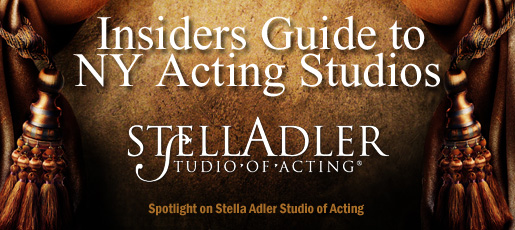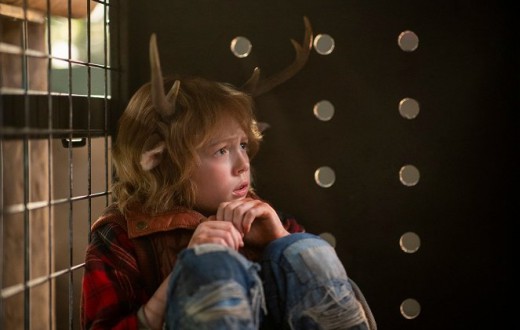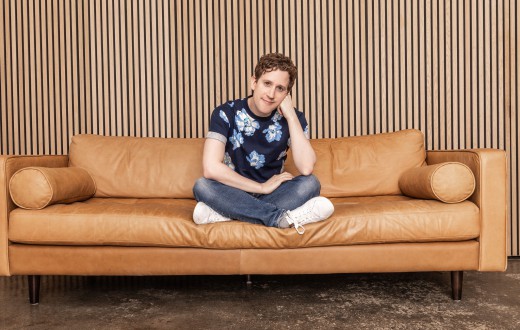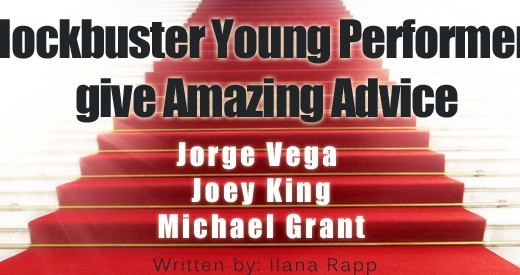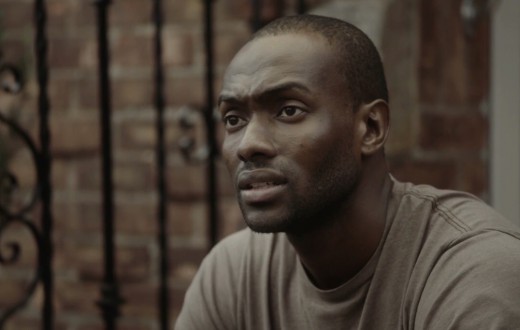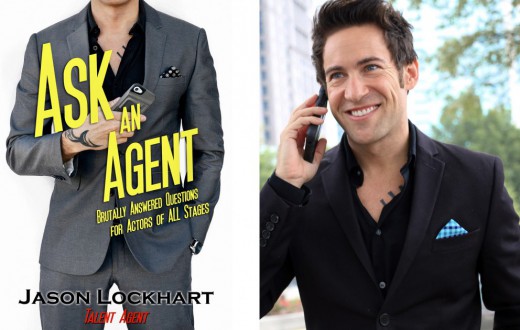NATURE vs. NURTURE…
When it comes to that age old debate… both nature and nurture are equally impactful for actors looking to reach their highest artistic level.
“Growth as an actor and growth as a human being are synonymous,” shares Stella Adler’s Artistic Director – Tom Oppenheim. “Our training will nurture their depth as actors and people.”
Stella Adler dedicated her life to preserving and expanding the highest level of art in the theatre. The youngest daughter of Sara and Jacob Adler, Stella began her career on her father’s stage at the age of four in a production of Broken Hearts. In 1949 she establish her own studio called the Stella Adler Theatre Studio (later renamed the Stella Adler Conservatory of Acting and finally the Stella Adler Studio of Acting). She went on to teach some of the most prolific stage and film actors of the 20th Century.
Of course, the history of the Stella Adler Studio of Acting includes more than the teachings of Stella Adler. It also bears inclusion of Konstantin Stanislavski, Jacob Adler, Harold Clurman and the Group Theater… and Tom Oppenheim oversees it all.
For the past 15 years, Tom Oppenheim has continued Stella’s tradition and has built upon it, adding components that emphasize social outreach and the potential for theatre to influence society. Tom was born in New York City and studied acting at the National Shakespeare Conservatory and with his Grandmother, Stella Adler.
To find out more about the nature of their nurturing approach at the Stella Adler Studio of Acting (and it’s LA division – The Art of Acting Studio) NYCastings spoke with Stella Adler’s Grandson – Tom Oppenheim.
Q & A with Stella Adler’s Artistic Director – Tom Oppenheim
Q: How does Stella Adler studio nurture the ability of an actor?
 We do that through our mission… that growth as an actor and growth as a human being are synonymous. The mission is to create an environment that nurtures theatre artists so that they value humanity, their own and others, as their first priority while bringing art and education to the community – which is a greater community.
We do that through our mission… that growth as an actor and growth as a human being are synonymous. The mission is to create an environment that nurtures theatre artists so that they value humanity, their own and others, as their first priority while bringing art and education to the community – which is a greater community.
When I took over the studio 15 years ago, my first goal was o answer the question… “What does it mean to be a student of Stella Adler today?” I didn’t want the school to degenerate into a kind of wax museum devoted to Stella Adler’s memory. That could lead to choosing less gifted teachers over more gifted teachers. So what do we follow as our guide? That is where we came up with growth. When I watched my grandmother teach, what seemed like the through line present in every word, is that actors have to develop ways of nurturing their humanity. That acting is, in a way, bigger than acting.
Q: What is Stella Adler’s vision of an actor?
Someone who is passionate about acting, who wants to scale the heights of dramatic literature. But, also, an artist and an evolving human being. Our mission entails a number of different things – including excellent teachers and a well organized curriculum. Our primary programs are conservatory programs, programs that are 2, 3 or 4 years. Our conservatory program is 30 hours and we have a full time evening program that is 30 hours. Our objective, in terms of following our mission, is to identify the best possible teachers, a world class faculty, and then organize our curriculum in a way we feel empowers out actors.
The environmental part of the mission is to create an environment, an intricate swirl of extracurricular programs which involve the presentation of art forms – including but also extended beyond the theatre. For example, when Stella was around, the actor was compelled to not only study acting with great passion and to reach for the highest standards but to read literature, poems, to listen to great music, to study history to go to the museum.
The idea that growth as an actor means growth as a human being compels action. It compels the actor to become engaged culturally in the world and get engaged with other art forms, to understand what is in the greater family of artists and to draw on the arts as a whole.
At Stella Adler, we have the Harold Clurman art series that includes a lecture series, a symposia, poetry reading series with Nobel prize winners, a concert series in which we present primarily jazz and classical music and our students study in this kind of environment where there is a constant presence of cultural activities.
Q: How does your technique help actors succeed long term in this biz?
Part of the key to longevity is, in fact, to resist the market inclination to pigeon hole you – in that which, in your youth, makes money for you… which is your meal ticket. What we try to communicate to actors is that who they are includes the daily, habitual self and often it is the daily habitual self that is your ‘type’ and how people see you. It includes that so you can exploit it – sell toothpaste or be on a sitcom – but it includes a great deal more. As you grow, you are able to include more in your work and present it.
Q: How does your approach give New York actors an edge at auditions?
In terms of the mission, I feel that when you are grounded in the great depth of yourself, you are able to present yourself with great confidence… this is who I am. You have a bigger purpose. I have heard casting directors say that they are attracted to actors who do not bring into their room that desperateness, that their sense of worth depends on them getting that job.
I think that if you help actors see a higher vision, they bring a profound confidence into the audition – and that is attractive.
Also, at the end of our daytime conservatory, we focus on production and performance. At that point, we put what they learned into practice and focus on audition techniques. We simulate as many types of auditions and interview situations as possible. And we have PROS – professional resources outside of school. That is the nuts and bolts… teaching students how to audition with monologues for theatre, for film, cold readings, multi camera, introducing them to agents and showcasing them.
Q: What type of person is best suited for your style of training?
People that are passionate, have endurance and want to learn how to be actors from the ground up. People who have the passion to learn voice and movement and improv. Who want to spend all day and night in the studio. Our students who do 30 hours a week with us, that is just class. They are really here 50 hours with rehearsing and all.
I often ask actors, “What do you love other than acting?” And I am looking for those actors who are engaged in life in a number of different ways. I love when they say they are into poetry or hiking or are inspired by the idea of growth as the actor and human being. People who want to be in that kind of environment.
Q: Are you primarily a school for theatre training?
We believe that the best trained actors are stage trained actors, that is true. Particularly in the first year we focus on the three dimensional reality of the stage. Film is a two dimensional world and there are different rules for that. The profound questions that an actor has to ask, we feel are best addressed when there is no reference to a camera. Who am I? What am I? What are the life and death stakes of the character? What is this play about?
But, we do very much acknowledge that young actors need to feel very comfortable in front of a camera and in a studio. In the third year, we very much include this in the PROS class and encourage our actors to understand that their lives will include film and television.
 Q: If you had one word to sum up why someone should study at YOUR studio – what word or saying would you use?
Q: If you had one word to sum up why someone should study at YOUR studio – what word or saying would you use?
Growth as an actor and growth as a human being are synonymous. Our training will nurture their depth as actors and people.
Q: Can you share some inspirational advice that you got – from your family?
I remember being in class with Stella and she described the gesture of bowing, of why actors bow. She said that when an actor bows to an audience, it is in the way a servant bows to royalty. Actors serve humanity. That is our objective. We have a service which is to reflect humanity to itself.
To learn more about the services at Stella Adler Studio of Acting and how to grow as both an actor and human being…. visit their New York and LA sites.
NY: http://www.stellaadler.com/
LA: http://www.artofactingstudio.com/
Thank you to Tom Oppenheim for his studio insight!

